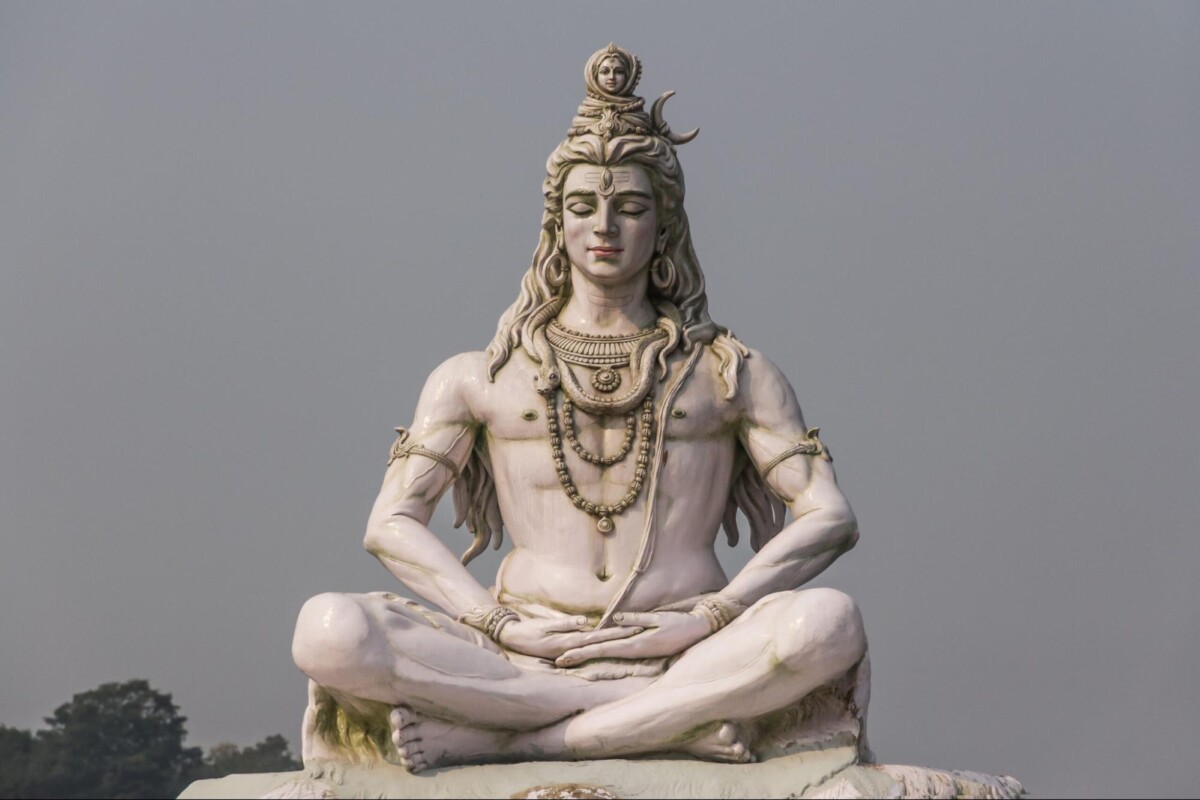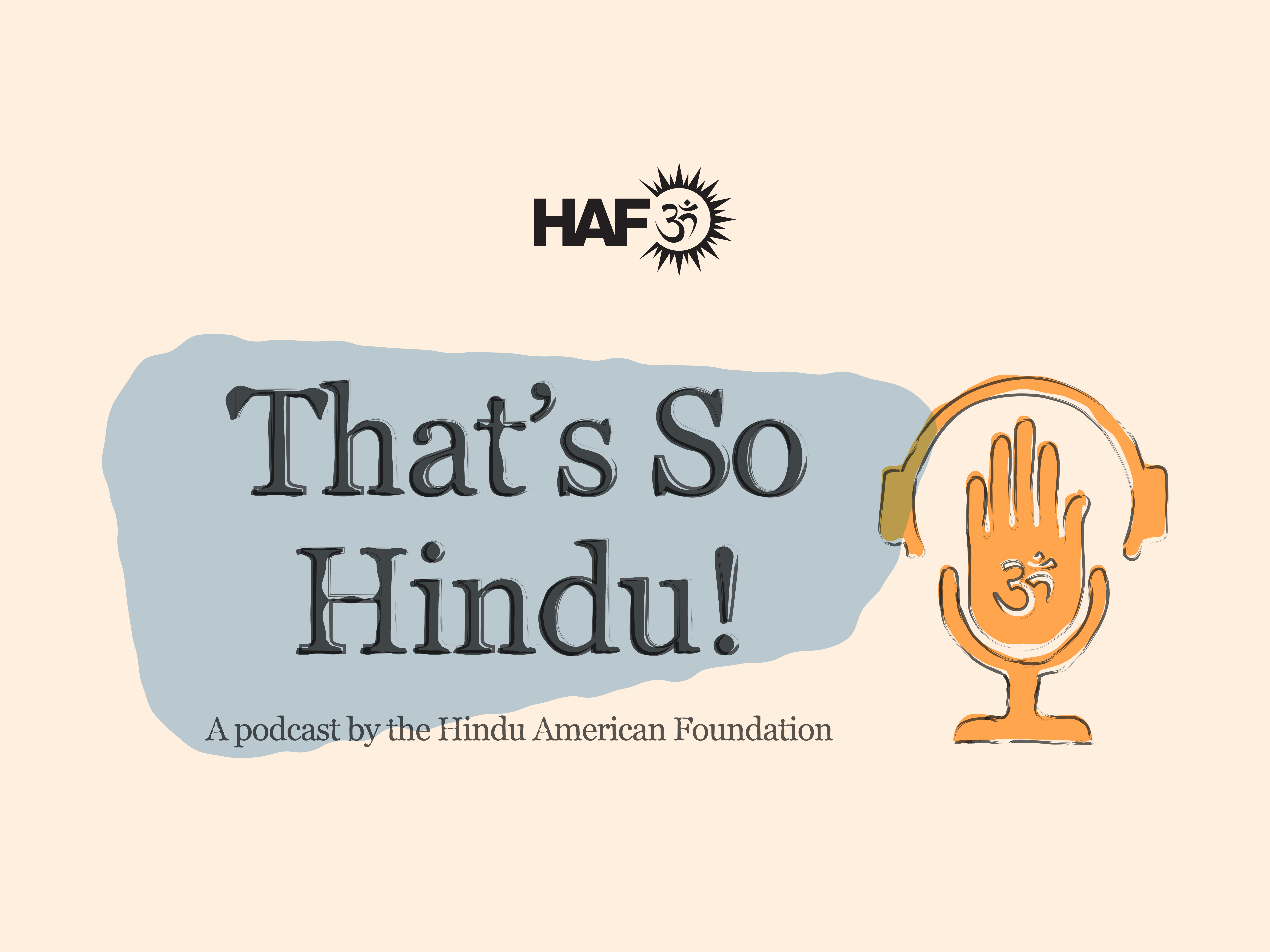
As interfaith marriages increase, questions of religious upbringing also increase. Differences get more pronounced in the case of divorce. In such cases, judges can actually prioritize one religion over another, in the name of the “best interests of the child.” But given Hinduism is a relatively underrepresented religion in the US, and not understood by many judges, Hindu Americans can get the short end of the stick.
HAF recently got involved in a case where Raj Yerasi—a Hindu American based in New Jersey—was wrongly found to be in bad faith, simply for defending his right to conduct a Hindu practice with his children. HAF filed an amicus curiae brief in the appeal of this case, believing the lower court’s decision to be unconstitutional, with grave repercussions for the Hindu American community and recently won!
He has agreed to discuss his case with us in the interest of helping other Hindu Americans who may find themselves in similar situations.

A large statue of Shiva in meditation at Parmarth Niketan ashram in Rishikesh
Can you first explain how you ended up in court in the first place?
Raj Yerasi: I’ve spoken at great length about that in an interview elsewhere. But in short, I had previously been married to a Jewish-American, with whom I share 50/50 custody of our young boys. I had thought we were raising them interfaith, but shortly after our marriage ended, we started having differences over their religious upbringing, and we each went our separate ways on that. She’s raised the children Jewish on her time, and I’ve raised them Hindu on my time.
A few years later, my ex-wife scheduled a Jewish religious activity that coincided with the time they were with me, reducing my time with the kids including the time we had for our main religious activity, which was a daily meditation practice — specifically Transcendental Meditation, which is of Hindu origin, as HAF has written.
We were unable to resolve this conflict, so I felt I had no choice but to go to court and ask that my ex-wife continue doing her religious activities on her own time, just as I was doing my religious activities on my time with our children.
What happened in that court case?
Raj Yerasi: The judge ruled against me, basically giving priority to my ex-wife’s religious activity, which the judge spoke about at length and justified as “mandatory,” without ever commenting on the meditation practice our children and I were participating in. I was disappointed by that, although the judge did grant me commensurate make-up time. Equal make-up time was only logical, but it was much more than what I was being given otherwise, so at least I got a consolation prize.
However, what shocked me was that the judge also declared my motion to have been filed in bad faith. She didn’t really explain why, other than saying she thought I had just filed my motion to get in the way of my ex-wife’s religious activity. The judge ordered me to pay my ex-wife’s counsel fees as punishment.
Any thoughts as to what the judge was thinking?
Raj Yerasi: I really don’t know. With respect to my ex-wife’s religious activity, I had suggested other alternatives available during her time, which even my Jewish friends thought were good alternatives.
Perhaps the judge thought my meditation practice was made up, or frivolous. Now, in my brief, I had described the history of meditation, the significance for many Hindus, how I myself had practiced it every single day for over 25 years, how my kids had also learned it. But maybe she was operating on preconceived notions. I really don’t know.
Meditation counts as religious expression.
Very few of these family law cases are ever appealed. Why did you appeal this?
Raj Yerasi: The part of the judge’s decision that disregarded my religious activity was bad enough. But the bad faith finding went over the line. It basically punished a Hindu American for defending a legitimate religious practice. This was not only unconstitutional, but I felt it sent a dangerous message to the Hindu American community: if you defend your religious rights in court, not only will you lose, but you will be punished. This I felt could not stand.
Appeals are extremely difficult to win, so I focused on just the bad faith finding, which was the most egregious part. I knew it would take a lot of time and money, but I felt it was my duty to do something.
We understand you represented yourself in your appeals case. What happened during your appeals hearing?
Raj Yerasi: I did get advice from my lawyer, but I represented myself, writing my own briefs and requesting oral arguments in front of the judges — appeals in New Jersey are heard by a panel of judges. There, I went toe-to-toe with my ex-wife’s lawyer, fact checking her on the spot. It was actually fun. It helped that the appellate judges were very knowledgeable. They asked great questions, and quickly grasped the issues.
I had a good feeling walking out of that courtroom, but it takes some months to get the decision. The hearing was in April of 2024, and the court issued their decision last month and reaffirmed it last week.
What did the appeals court’s decision say?
Raj Yerasi: The appeals court validated the points I made, and said that the lower court “mistakenly exercised its discretion” with the bad faith finding, which was “erroneous” and “not supported by the record.”
Moreover, they validated that I had been defending a legitimate religious practice. They wrote that I had “raised a reasonable argument” that my ex-wife scheduling her religious activity on my time with the children “would interfere with his ability to train his son on the Hindu practice of meditation.”
How did HAF help you?
Raj Yerasi: First off, I have to say, HAF was extremely responsive. They agreed to talk to me when I emailed them out of the blue, despite not knowing anyone there. That speaks volumes about how much they care about Hindu Americans. So I am very grateful to HAF just for that.
But I am enormously grateful for HAF’s amicus curiae brief, which was a big help. It helped explain the Constitutional issues better than I ever could, and I believe it got my case taken more seriously than it otherwise would.
The judges may not have allowed HAF to appear, but they read the brief, and it was clear to me that they understood the Constitutional issues, perhaps helped by the brief, and just wanted to understand certain facts of the case.
I also brought up HAF’s amicus curiae brief in my oral arguments at a key moment. I said that a court finding a Hindu American to be in bad faith simply for defending his or her religious rights was extremely upsetting to members of our community, which HAF’s involvement demonstrated. The judge were clearly paying attention. And I believe that made an impact.
What would you say are the takeaways of your experience for the Hindu-American community?
Raj Yerasi: I think there are both positive and negative takeaways. First, the appellate ruling shows we can successfully defend our religious rights, if we fight for them. It’s certainly renewed my sense of hope, and my confidence that there are truly excellent judges out there.
However, I think the ruling also confirms that there is bias in the judicial system working against Hindu Americans. This bias might be the result of ignorance about Hindu practices, not antipathy, but it’s there, it’s real, and it works against us.
It also was a victory, but not a complete victory. Why should a Hindu meditation practice be disregarded, and made subservient to another religion’s activity? I would submit that the appeals court’s ruling casts doubt on that part of the trial judge’s decision.
Clearly there are too many judges who don’t understand Hindu traditions. This ought to be addressed. I am thrilled that HAF is now starting a legal justice center, to help more individuals like myself, and to address the root causes of legal injustice by providing education to judges and lawyers.








































